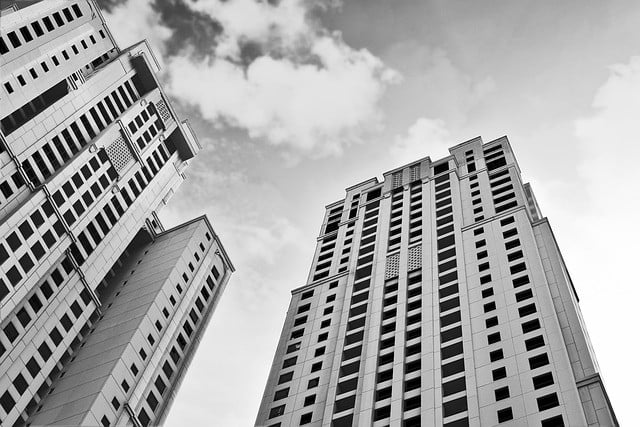- MENLO GROUP
- 480.525.5362 (Call or Text)
- 480.535.5854
- info@menlocre.com
- Grafton Milne, Designated Broker
- Owner Portal | Tenant Portal

Real Estate Developer Opportunities In Phoenix
November 9, 2017
How to Showcase the Best Features of Your Rental Property
November 9, 2017When looking for commercial property, you may wonder whether to buy or lease a space. To help you decide, we will outline the advantages and disadvantages of both.
Advantages of Leasing
Location
In certain markets, more properties are available to lease than to purchase, so leasing provides businesses with more options. Leasing may also enable users to occupy spaces in a locations where they couldn’t afford to buy property.
Flexibility
Leasing can provide greater flexibility to users who may need to contract, expand or relocate in the future.
Availability of cash
Leasing typically requires less cash out of pocket than buying. Businesses that lease may have more available funds to invest in the company’s products/services or establish additional locations.
Source of financing
Some small firms that struggle to obtain traditional financing may benefit from leasing since it can be viewed as a source of financing.
Stability of costs
The long-term occupancy costs of leasing are typically simple to estimate. Tenants are generally insulated from unforeseen capital costs that come from upgrading mechanical systems, repairing the property structure or replacing the roof.
Tax Benefits
Unlike ownership, the occupancy costs of leasing are fully deductible, including that portion of rent attributable to the value of the land.
Focus
Leasing space enables the user to concentrate on its primary business without the distractions of property management.
Disadvantages of Leasing
Cost
Leasing may cost more in the long run. Firms with strong earnings and available capital may save money by taking advantage of the tax benefits from ownership.
Loss of appreciation
Leasing means the tenant does not benefit from property appreciation.
Contractual penalties
If leased property becomes obsolete or the business occupying the space becomes unprofitable, the tenant must continue paying rent or face penalties for default.
Loss of salvage value
Many leases state that any improvements made by the tenant become property of the landlord at the end of the lease term or must be removed at the tenant’s expense.
Control
When leasing, users have little to no control over the other tenants in the building, rent increases and other factors that may adversely impact business.

Advantages of Owning
Appreciation
An owner enjoys the benefit of capital appreciation over time.
Debt reduction & equity build-up
Property owners may enjoy debt reduction and equity growth through amortization of their original loan amount. This occurs because both the interest and principal are included in every mortgage payment.
Control
Within certain legal limits, property owners have the opportunity to operate the building as they see fit.
Income
Property owners can lease out a portion of their property and use the income to pay the mortgage or fund other business objectives.
Tax advantages
An owner enjoys the benefit of interest and cost recovery deductions that reduce the annual tax liability from real estate operations. Accumulated cost recovery deductions and capital gains from appreciation are typically taxes less than the user’s ordinary income tax rate. The user enjoys the benefit of those unused tax dollars until the property is sold.
Disadvantages of Owning
Time frame
Businesses shouldn’t buy a building unless they plan to own it for at least five years. Commercial properties typically appreciate in value, but the cost of buying and selling may offset the benefits of appreciation over a short-term holding period.
Inflexibility
Owned facilities often do not lend themselves to the expansion or contraction of building improvements.
Initial Capital Outlay
Most commercial lenders require equity at closing of 20 to 30 percent of the cost of the property acquired. This equity requirement ties up capital that could otherwise be used to grow the user’s business.
Management
Property owners must oversee legal compliance, health and safety, and contractor management. These property management tasks may distract from their primary business.
Financing
In times of economic recession, potential building owners may not be able to secure financing. For those with current loans, rising interest rates may make refinancing difficult.
Financial Liability
A commercial loan often involves a 20- to 30-year amortization, so building ownership is a long-term financial commitment. Certain loan provisions may involve penalties if a loan is paid off early.
Risks
Ownership risks include changes to the market, financing difficulties and unforeseen costs for repairs and maintenance.
Contact one of Menlo Group’s expert advisors to discuss if leasing or owning property is right for you and your business.


